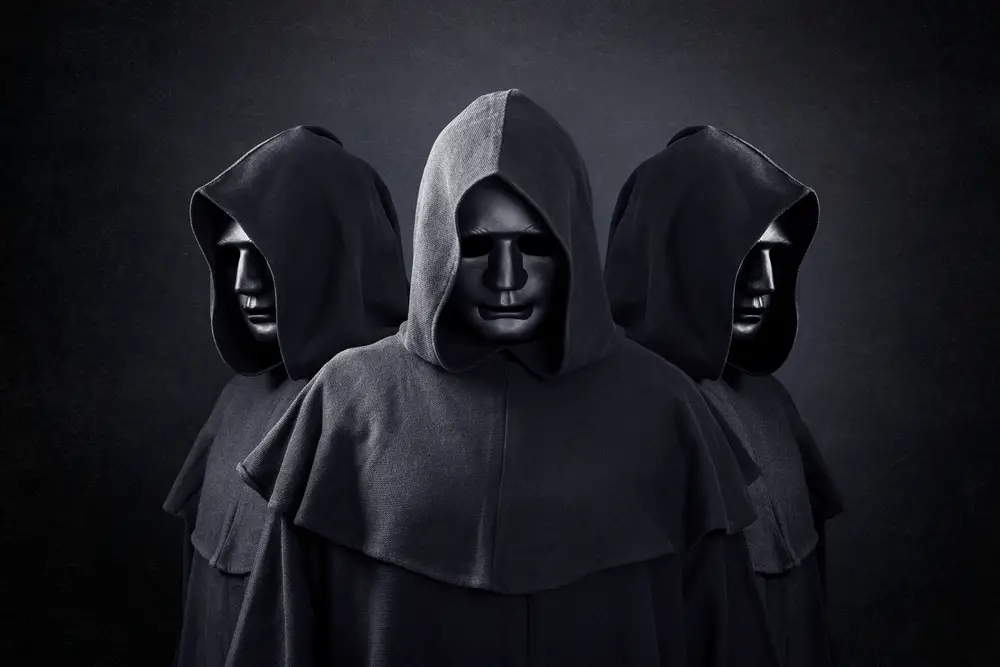1. Quarantine – It Started with a 40-Day Rule

The word “quarantine” might make you think of modern health measures, but it actually comes from a 14th-century Venetian policy. Ships arriving in Venice from plague-ridden areas were required to anchor offshore for 40 days before docking. The term comes from the Italian “quaranta giorni,” which literally means “forty days.” This wasn’t just a random number—people back then believed that 40 days was the magic amount of time needed to prevent disease from spreading says McGill University.
Over time, “quarantine” evolved to mean isolating people or animals to prevent illness from spreading, whether for 40 days or not. During pandemics, the word resurfaces in everyday conversation, reminding us of its medieval roots. While the original policy was strict, today’s quarantines vary in length depending on the disease. Still, the basic idea remains the same—keeping potential illness at bay by staying put for a while adds Science Friday.
2. Clue – It Meant Something Totally Different in Greek Mythology

A “clue” is something that helps us solve a puzzle, but its origin is way more interesting than a detective story. It actually comes from the word “clew,” which meant a ball of yarn. In Greek mythology, Theseus used a ball of thread to navigate the labyrinth after defeating the Minotaur. Without his trusty “clew,” he would have been hopelessly lost in the maze shares Merriam-Webster.
Over time, the meaning of “clew” shifted from a literal ball of yarn to something that helps guide you in the right direction. Eventually, the spelling changed to “clue,” and it became associated with solving mysteries. So, the next time you’re piecing together a puzzle, you can thank an ancient Greek hero for the word you’re using.
3. Salary – It Comes from Salt

Getting a “salary” is something we associate with paychecks, but the word originally had nothing to do with money. It comes from the Latin word “salarium,” which referred to the payment Roman soldiers received—sometimes in salt. Salt was incredibly valuable in ancient times, as it was one of the few ways to preserve food. Soldiers relied on it to keep their rations from spoiling, making it an essential part of their compensation shares NPR.
As monetary systems developed, “salarium” shifted to mean any kind of regular payment, not just salt. Though we no longer get paid in seasonings, the connection remains in phrases like “worth one’s salt.” It’s a strange reminder that something we now sprinkle on fries was once as valuable as gold.
4. Nightmare – It Involved a Supernatural Horse

We all know what a “nightmare” is, but its origin is weirder than you’d expect. The word comes from the Old English “mare,” which referred to an evil spirit that sat on people’s chests while they slept. These ghostly beings were believed to cause terrifying dreams and even sleep paralysis. People feared them so much that they developed rituals to ward them off, like hanging horseshoes above their beds.
The “night” part was later added to specify that these spooky encounters happened during sleep. Over time, “nightmare” came to mean any kind of bad dream, whether or not a supernatural creature was involved. Thankfully, we now know that bad dreams are just the brain’s way of processing stress, not a ghostly intruder.
5. Muscle – It’s Named After a Little Mouse

“Muscle” sounds like a strong word, but its origin is surprisingly cute. It comes from the Latin “musculus,” which means “little mouse.” The Romans thought that flexed muscles looked like tiny mice moving under the skin. This comparison stuck, and the term eventually became the word we use today.
Though we no longer think about rodents when talking about biceps, the connection is still hidden in the word itself. It’s funny to think that something as powerful as a muscle was named after a small, scurrying creature. Next time you hit the gym, just imagine you’re flexing an army of little mice.
6. Window – It Once Meant “Wind Eye”

A “window” is something we look through, but the word itself has a more poetic origin. It comes from the Old Norse “vindauga,” which literally means “wind eye.” Vikings used this term to describe openings in buildings that allowed fresh air inside. Unlike modern windows, these were often just holes without glass.
As architecture evolved, windows became more sophisticated, but the name stuck. When the word made its way into English, it kept the same meaning but lost its Viking pronunciation. So, every time you look out a window, you’re technically peering through a “wind eye.”
7. Pandemonium – It Was Invented for a Poem

“Pandemonium” sounds like a word that must have existed forever, but it was actually invented by poet John Milton. In Paradise Lost (1667), Milton used the term to name the capital of Hell, combining the Greek words “pan” (all) and “daimon” (demon). It literally meant “place of all demons.” The word perfectly captured the chaos and disorder associated with the underworld.
It didn’t take long for people to start using it more broadly to describe any kind of wild, noisy situation. Over time, it lost its connection to Hell and became a common way to talk about uproar or chaos. If you’ve ever described a loud classroom or a hectic party as “pandemonium,” you’re unknowingly quoting Milton.
8. Ketchup – It Didn’t Start with Tomatoes

Ketchup is practically synonymous with tomatoes, but it didn’t start that way at all. The word comes from the Chinese “ke-tsiap,” which referred to a fermented fish sauce. Traders brought it to Europe, where it was adapted with different ingredients, including mushrooms and walnuts. It wasn’t until the 19th century that tomatoes became the main ingredient.
Even though modern ketchup is completely different from the original version, the name stuck. Now, it’s one of the most popular condiments in the world, even though its fishy origins have been mostly forgotten. The next time you squeeze some onto a burger, just remember—it all started with fermented fish.
9. Nice – It Used to Mean the Opposite

“Nice” is a compliment now, but it originally meant something quite different. It comes from the Latin “nescius,” which meant “ignorant” or “foolish.” In medieval times, it was used as an insult to describe someone who was clueless.
Over the centuries, the meaning gradually softened and changed to mean someone who was refined or polite. By the 18th century, it had fully transformed into the positive word we use today. It’s funny to think that calling someone “nice” used to be an insult!
10. Jumbo – It Started with a Circus Elephant

The word “jumbo” is now used to describe anything oversized, but it originally came from the name of a famous elephant. In the 19th century, Jumbo was a massive African elephant who performed in P.T. Barnum’s circus. He was one of the biggest elephants in captivity, weighing around 13,000 pounds. Crowds flocked to see him, and he became a global sensation, even giving rides to children, including a young Theodore Roosevelt.
Jumbo’s size and fame led to his name being used as a synonym for anything gigantic. Even after his tragic death in a train accident, his legacy lived on in language. Today, we have jumbo jets, jumbo shrimp, and jumbo-sized drinks, all thanks to one particularly big elephant. It’s funny to think that a word we casually use to describe large portions of food or airplanes originally came from a circus animal.
11. Alcohol – It Came from Eyeliner

“Alcohol” comes from the Arabic word “al-kuḥl,” which originally referred to a fine powder used as eyeliner. This black cosmetic was highly valued in the Middle East and was made by grinding up a specific type of mineral. The process of refining and distilling substances was highly advanced in the Islamic Golden Age, and the word “al-kuḥl” gradually expanded to mean any purified or distilled substance.
When Europeans adopted the word, they eventually associated it with distilled spirits, leading to the modern meaning of “alcohol.” It’s strange to think that a word now tied to beer, wine, and whiskey started out referring to eye makeup. Even today, the original meaning hasn’t completely disappeared—“kohl” is still a term for certain types of eyeliner. So, in a way, both definitions of the word continue to exist.
12. Assassin – It Came from a Mysterious Group

The word “assassin” has a dark and mysterious origin tied to the Middle Ages. It comes from the Arabic word “ḥashshāshīn,” referring to a secretive sect of warriors during the Crusades. These fighters, believed to be part of the Nizari Ismailis, carried out targeted killings of political and military figures. Rumors spread that they used hashish before their missions, which is how they got their name. However, many historians believe this was propaganda spread by their enemies rather than an actual practice.
Over time, “assassin” lost its connection to this specific group and became a general term for any hired killer. The idea of skilled, stealthy assassins has fueled countless legends, books, and movies. From video games like Assassin’s Creed to historical thrillers, the word still carries a sense of mystery and danger. The real history, however, is even more fascinating than fiction.
13. Berserk – It Started with Viking Warriors

“Berserk” comes from the Old Norse word “berserkr,” referring to legendary Viking warriors who fought in a trance-like fury. These fighters were said to wear bear skins—hence the name, which may mean “bear shirt”—and enter a state of uncontrollable rage in battle. They were feared by enemies because they seemed impervious to pain, attacking with reckless abandon. Some historians believe this state was induced by hallucinogenic mushrooms or other substances.
As Viking tales spread, the term “berserk” became synonymous with wild, uncontrollable behavior. It eventually made its way into English to describe anything from a person losing their temper to total chaos. Whether or not the berserkers actually had supernatural strength is up for debate, but their name lives on whenever someone goes absolutely wild.
